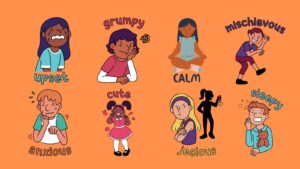All About Early Years in ELT.
Is it a case of ”the younger the better” when it comes to foreign language learning? We hear it often that children pick up language more easily than adults but the jury is still out on whether this is true. Indeed, this blog post by professor Jean-Marc Dewaele discusses evidence that actually adults and teens learn faster than young children. What we can be certain of, is that demand for young learner classes is growing. In England, learning a second language became compulsory in 2014 , mirroring global trends for children to start learning at a younger and younger age. As EFL teachers, that means that we need ensure that we have a suitable skill set for working with younger learners.
Being a teacher who teaches children sometimes as young as 2, it can be interesting to watch other teachers’ reactions when I mention my early years classes. ”I just can’t imagine what you would do with a 2 year old”, ”How much can a 2 year old understand anyway?”. Some just look perplexed. I too, used to feel the same way until teaching classes to toddlers became part of my regular schedule. To those used to teaching adults, it can be easy to feel overwhelmed by the idea of trying something so radically different but hand on heart I can say that my early years classes have been some of the most rewarding classes that I have taught. The following are some of my insights into teaching the little angels.
Adapt your expectations
A child’s early years are fertile ground for developing social, cognitive, linguistic and physical skills. This also means that some of them may not have yet reached developmental milestones that older children and adults have. It may sound obvious but if a child has not starting speaking in their first language, they are unlikely to speak in the second. Classes with younger toddlers may focus more on receptive skills, for example asking the child to ”point to the cat” or asking ”where’s the horse?”. At first it can feel frustrating to be talking to yourself but try not to get disheartened. Remember that your teacher language is valuable input and just because a toddler is not producing, it doesn’t mean that they are not absorbing language around them.
Be warm, open and sensitive
Early years learners can be prone to tears due to separation anxiety from parents, tiredness or just because they are having a bad day. As the teacher, you need to develop a relationship that inspires trust. This means behaving in an approachable and friendly manner and adapting to the emotional needs of the learner. Be playful with learners and ask them about their day or their toys when they come to class. If a learner is crying because they miss their mum, it’s more appropriate to comfort them in L1. Be prepared to throw away your plan if a child is emotionally distressed and you think another activity will help them to feel calmer.
Plan for variety
Early years learners have much shorter concentration spans that older learners so your plans should be pacey. Avoid spending 15 minutes on a flashcard game because learners will get bored and restless and start to move around. Instead it is more productive to have a variety of shorter activities that appeal to learners in multi-sensory ways, such as movement based activities, songs and musical activities and tactile activities where learners have something that they can touch. This helps to maintain interest and therefore concentration for longer.
Make classes dynamic and engaging
It has been shown that engaging in play helps children to learn and develop. It also creates motivated learners who enjoy coming to class. You should not think of play as a waste of time, rather as an opportunity for learning. Make sure to allow time for playing within the lesson and if you have the resources, make sure that children have interesting things to play with. Younger tots enjoy engaging in sensory play, so things like water, sand and textured toys are interesting to them, whilst older tots are starting to engage in imaginary play, so costumes and toys for role play are ideal. Five to six year old year old children are developing their gross motor skills so toys such as sports equipment are suitable.
Consider your environment
This article by Margie Carter explains that the Reggio Emilia approach to early years education considers that the environment is so important to a child’s education, it can be considered ”the third teacher” (after teachers and parents). A suitable environment for early years learners should be safe, colourful and interesting with plenty of toys for children to play with. Unfortunately, creating this environment can also be one of the biggest challenges in an EFL context because teachers may be teaching off-site or the classroom may be an adult classroom that is temporarily used for teaching children. If you are in one of these unfortunate situations there are limits on what you can do, but there may be some ways to improve the situation. Find out if there is a storage cupboard in the classroom or nearby that you can use to store toys and materials. Make a plan of your floor space and furniture and experiment with different ways of moving it around. If you can create different zones for different types of activities (i.e. a zone with tables for crafts, an open zone for physical activities and perhaps a quiet zone for storytelling). You can use furniture as barriers between zones. If you have a teaching assistant, make sure that they are familiar with your classroom setup so that they can help you to set up and put away afterwards. If you are allowed to make wall displays, this could be a nice way giving learners a sense of ownership over the environment.
Think about taking a professional development course
Nothing beats real classroom experience but perhaps you feel that you want to learn more about teaching younger children. You could consider taking a young learner extension course such as the Cambridge CELTYL, which helps teachers to develop their teaching skills with younger learners in general. However there are also several online courses which are more specific for teachers who teach early years such as this course on Teaching English in Pre-Primary Education, offered by NILE, or the course that I am currently taking in Early Years Level 4 offered by Open Study College, which mainly focusses on the UK Early Years Foundation Stage Framework- the statutory guidelines set by the UK government for early years education.
Most importantly- be present and have fun with it!
At the end of the day, students are able to recognize an enthusiastic teacher. Whether you are new to early years or have been teaching it for a while, it is always important to come to class with a smile on your face and feel passionate about what you do. If you have any experience of teaching early years that you would like to share or any comments or hints and tips, please share them with us below!




